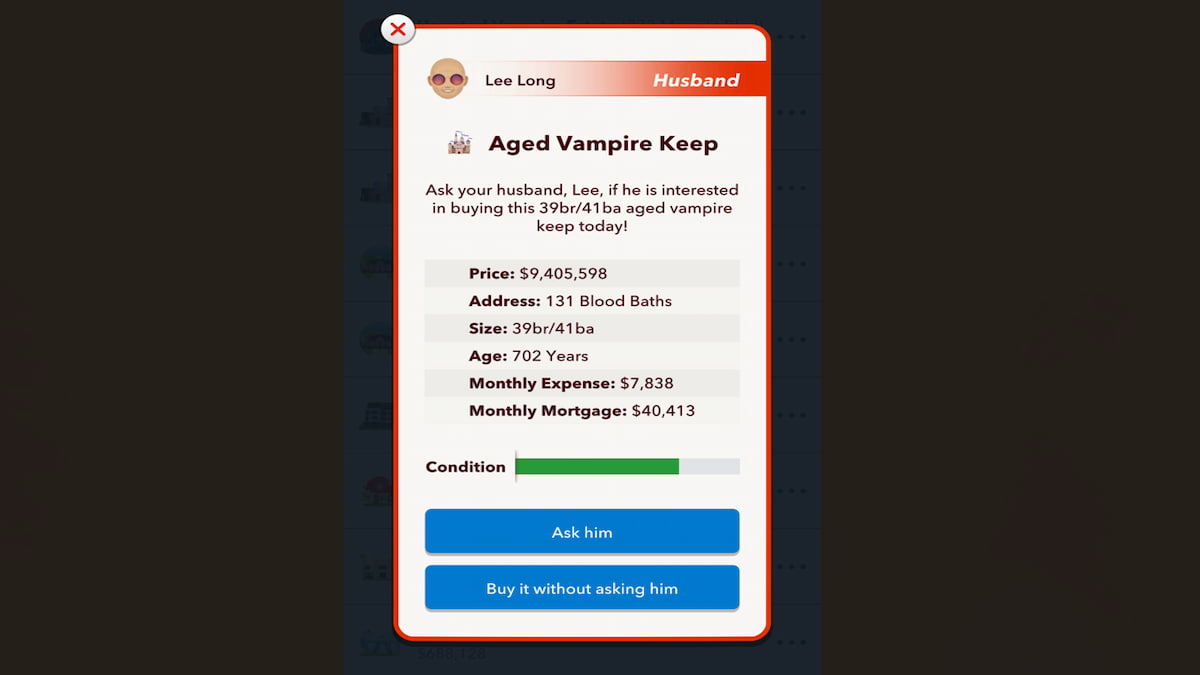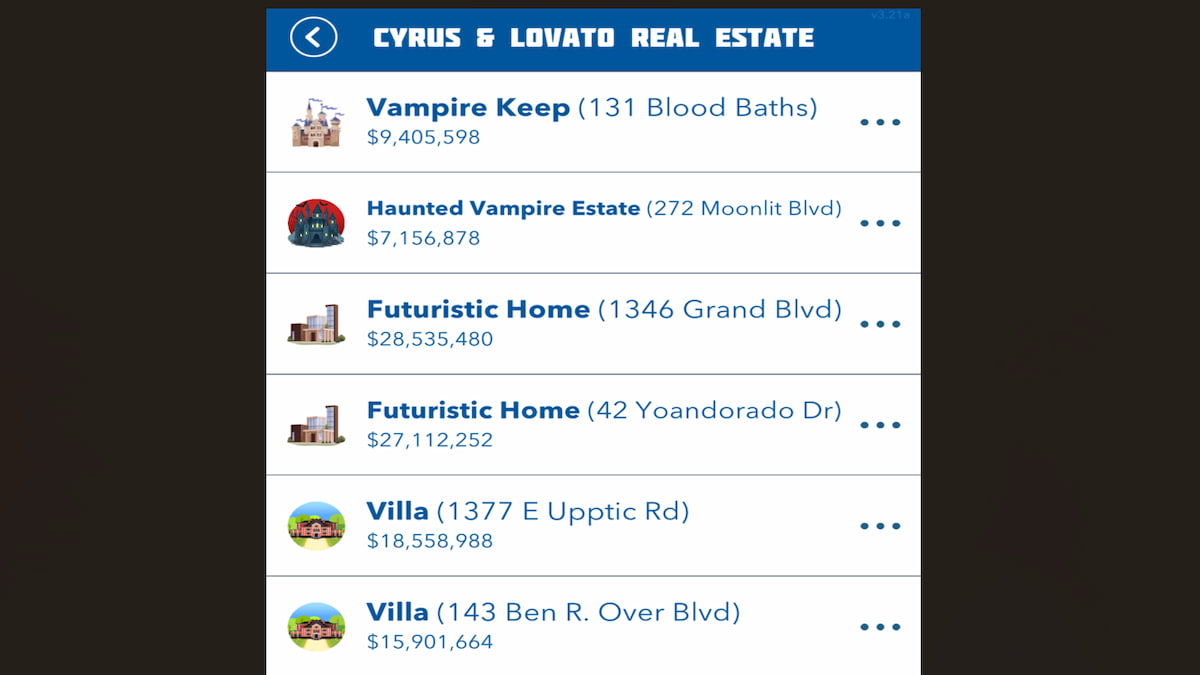The latest BitLife expansion lets players inhabit supernatural dwellings while transformed into immortal beings. Discover gothic residences where spectral encounters await residents brave enough to occupy these haunted estates. Follow these steps to claim your nocturnal abode.
Locating Vampire-Themed Residences
Contrary to popular belief, accessing nocturnal properties doesn’t require special DLC purchases. These architectural marvels appear naturally in property listings following recent gameplay enhancements.
Access real estate options through the Activities menu after reaching adulthood. Filter property listings to identify dwellings bearing these distinctive titles:
- Vampire Lair
- Vampire Estate
- Vampire Castle
- Vampire Keep
Seek properties labeled “Haunted” for guaranteed paranormal activity. Spectral encounters occur exclusively in these marked locations, though unprepared residents risk dangerous interactions with permanent consequences.




Financial preparation proves crucial, with prices spanning $2M-$10M. Pursue high-income professions like corporate law or political office to afford these properties. Mortgage options provide accessibility but demand disciplined wealth management to avoid repossession.
Supernatural Property Inquiries
Ectoplasmic manifestations only appear in Haunted-certified properties. Residents may experience random apparitions or intentionally summon spirits through occult methods, risking potentially fatal confrontations.
Market values for haunted properties show extreme variability, ranging from $200K starter homes to $10M luxury compounds. Persistent market monitoring improves chances of finding favorable deals.
Mortal citizens can legally purchase vampire-themed real estate without undergoing transformation. Supernatural status remains optional for property ownership in most jurisdictions.

